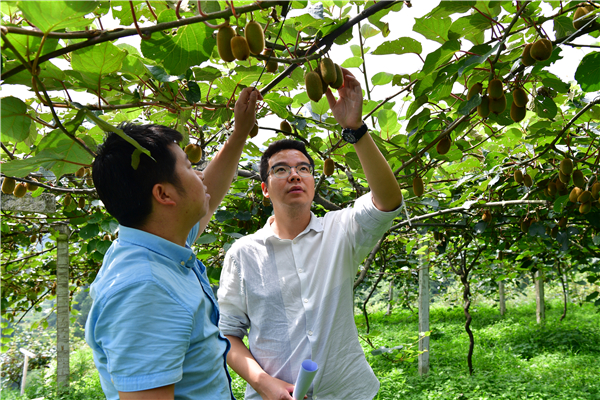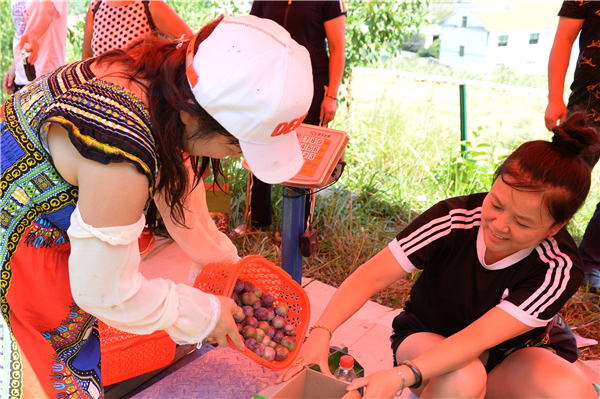Guanshanhu district promotes agricultural structure adjustment
The Guanshanhu district government in Guizhou teamed up with agricultural companies, professional cooperatives, and farmers to promote the adjustment of its agricultural industrial structure. They strove to plant economic crops with high output value, such as fruits, tea, and Chinese medicinal herbs, while decreasing traditional crops with less economic benefits, leading to notable achievements.

Technicians check the growth of kiwi fruits at a plantation in Yungui village, Guanshanhu district, Guiyang. [Photo/xinhuanet.com]
The district's Yungui village exemplifies the success of the adjustment of the agricultural industrial structure, bringing benefits to rural farmers. Liang Zhenglun, owner of the Fengguiyuan kiwi fruit plantation base, said that the 40 mu (2.67 hectares) plantation had an annual output of 12,500 kilograms, earning more than 100,000 yuan ($14,234) a year for him.

Local farmers pack plums into boxes at Zhaoguan village, Guanshanhu district, Guiyang. [Photo/xinhuanet.com]
In the past, the village's mountainous topography and infertile soil limited the output of crops, as well as the income of farmers. According to local conditions, Guanshanhu government chose kiwi fruit as the major industry to adjust the agricultural structure of the village. The district offered assistance, including seedlings, funds, and training classes for farmers, to encourage them to plant kiwi fruit. To date, the village's kiwi fruit plantation area has reached 300 mu.
To further promote industrial reform in rural areas, the district has made efforts in four aspects, covering technique training, financial investment, agricultural company cultivation, and infrastructure construction.
In terms of technical training, the district has invited agricultural experts to give professional classes in the fields of plantation and management of fruit and tea, benefiting 1,298 farmers within two years. A total of 15.93 million yuan has been invested in the plantation of fruit, tea, and vegetables.
To date, the district has cultivated three agricultural companies and 45 professional cooperatives. The roads of plantation bases at Zhuchang town, Jinhua town, and Baihuahu town have been improved to solve the problem of transporting agricultural products.
Zhao Yandi contributed to this story
Presented by China Daily.
黔ICP备05001922号-3
